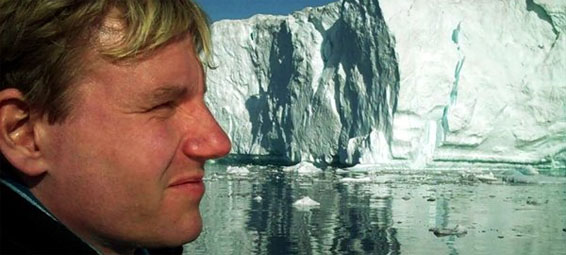When the environmental advocate Bjorn Lomborg was in town last month promoting his new movie Cool It, an optimistic response to Al Gore’s An Inconvenient Truth, I was told a prominent local talk radio show refused to have the Danish academic on as a guest. That rejection speaks to how polarized the debate over climate change has become. It also lends background to the terrible reputation Lomborg has built for himself by speaking out against the conventional wisdom of climate change.
His new documentary film hopes to change that. In Cool It, Lomborg is painted as a sensible, hopeful thinker, one who believes climate change is a series issue, but who also takes a serious look at the public policy that characterizes the world’s response to it. Unsurprisingly, Lomborg finds much to challenge in the political response to this impending global catastrophe.
To start, Lomborg urges the world to get its priorities straight. Climate change could change the world as we know it, but digging through evidence and going over data, he tries to show that the potential impact of the world’s temperature rising by a few degrees does not warrant the fear and panic that is sweeping the developed world.
In an interesting early scene, the Dane speaks to schoolchildren in Africa about their concerns and hopes for the future. The response is a collective desire for better housing and health care. In England, when confronted with the same questions, British school kids draw pictures of exploding suns and apocalyptic worlds. The juxtaposition of fears is not just sensational, Lomborg argues, it is an indication that we have mixed up our philanthropic priorities.
Cool It tries to bring viewers to a more sober consideration of the state of the planet. Rather then spending hundreds of billions of dollars to try to reverse global warming, something Lomborg believes is unlikely, he argues that we need to diversify our investment in solving the world’s problems, tackling things like poverty and third-world education as we invest in technologies that could treat the symptoms of global warming.
The most compelling part of Cool It comes with Lomborg’s inquiries into cutting-edge technologies that could play a role in quelling the impact of climate change. These include such sci-fi solutions as releasing gases into the atmosphere that simulate how volcanic eruptions create atmospheric temperature drops, and low-tech options like painting the black roofs and asphalt of America’s cities white. These lines of exploration represent Cool It’s most shocking abrogation from the established rhetoric of global change: it is not an insurmountable problem.
Perhaps this is why Lomborg is rued in some circles of the global warming community. His good news about the state of the planet could derail efforts to drum up support for massive changes in public policy, and they offer justification to jump off the moral environmentalist band wagon (initiatives like Earth Hour, in which cities across the globe turn out their lights, are so insignificant in terms of their actual impact on global warming, Lomborg argues, they are basically pointless outside of the effect they have on making us feel better about ourselves).
Cool It presents such a sensible argument it seems foolish to dismiss it. Global warming is a problem, but it is not so big a problem that we can’t do anything to fix it. Wouldn’t you like to know how?






